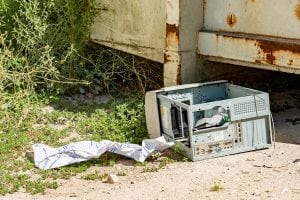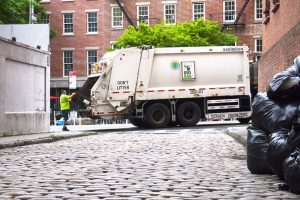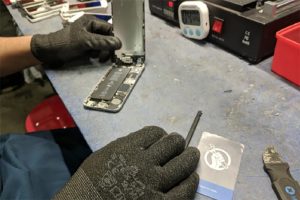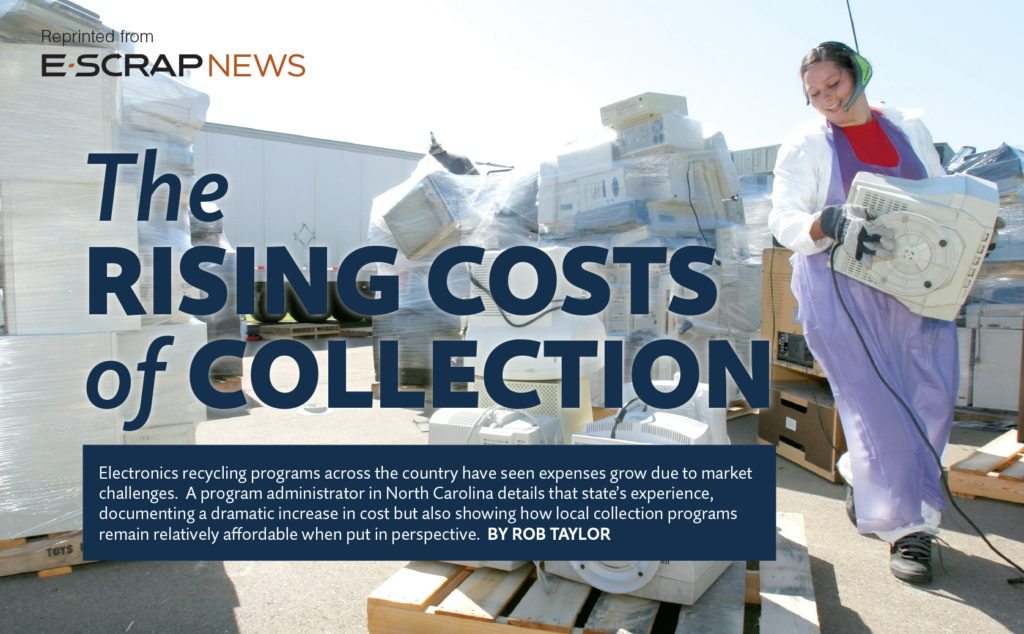 America’s most-populous city will further expand its curbside collection service for e-scrap starting Oct. 1.
America’s most-populous city will further expand its curbside collection service for e-scrap starting Oct. 1.

 America’s most-populous city will further expand its curbside collection service for e-scrap starting Oct. 1.
America’s most-populous city will further expand its curbside collection service for e-scrap starting Oct. 1.

The bankruptcy of a major e-scrap processor – and wider market conditions – led a Goodwill affiliate in Oregon to stop accepting most end-of-life electronics.
 Device scavenging is hampering formalized electronics recycling efforts in Europe, and a new study concludes there is little established processors can do to stop it.
Device scavenging is hampering formalized electronics recycling efforts in Europe, and a new study concludes there is little established processors can do to stop it.
 A large online electronics retailer has partnered with IT asset disposition company PlanITROI to launch an electronics take-back program.
A large online electronics retailer has partnered with IT asset disposition company PlanITROI to launch an electronics take-back program.
 Curbside garbage and recycling audits show the amount of e-scrap improperly disposed by New York City households has dropped substantially in recent years.
Curbside garbage and recycling audits show the amount of e-scrap improperly disposed by New York City households has dropped substantially in recent years.
 Households may like the convenience of leaving used electronics at the curb for collection, but doing so can give scavengers the opportunity to grab devices and any sensitive data they may hold. A new company is trying to solve those problems in areas around Philadelphia.
Households may like the convenience of leaving used electronics at the curb for collection, but doing so can give scavengers the opportunity to grab devices and any sensitive data they may hold. A new company is trying to solve those problems in areas around Philadelphia.

Scott Vander Kooy, president of Comprenew, signs a contract with Goodwill of Northern Wisconsin and Upper Michigan in late March.
A nonprofit e-scrap processor’s expansion into the Upper Peninsula of Michigan provides a case study in how service area reach can be widened without incurring major capital costs.
 Most e-scrap managers know not to shred mobile devices that contain lithium-ion batteries. But it turns out fires are a threat even when disassembly procedures are utilized.
Most e-scrap managers know not to shred mobile devices that contain lithium-ion batteries. But it turns out fires are a threat even when disassembly procedures are utilized.
This story originally appeared in the June 2016 issue of E-Scrap News.
Subscribe today for access to all print content.

This story originally appeared in the September 2016 issue of E-Scrap News.
Subscribe today for access to all print content.

